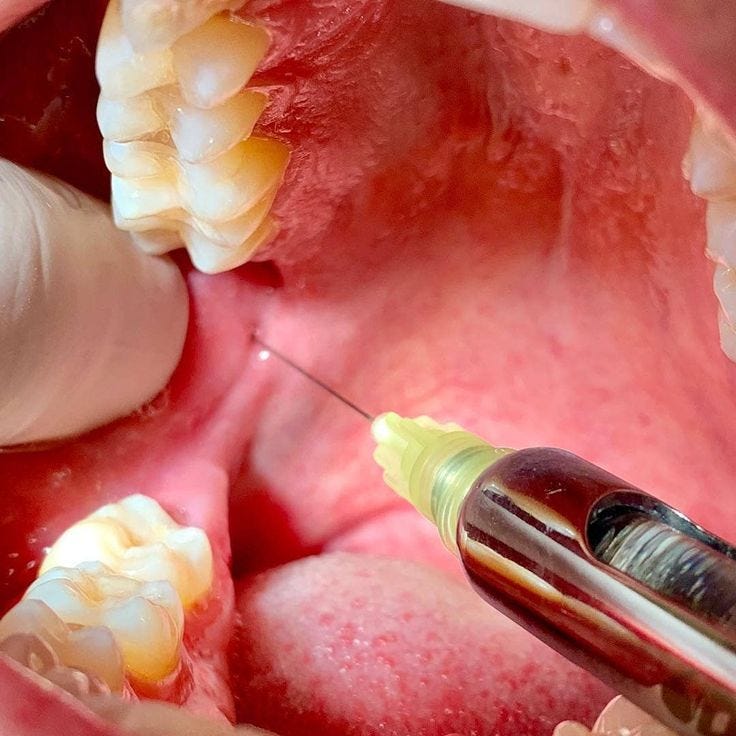I’ve had some toothaches. Miserable affairs; in fact, dental pain is rated one of the worst pains of all. (Right up there with the 24 hour news cycle and presidential debates.)
Because I have had toothaches I am sympathetic. Many years ago I was required to have a root canal in order to become a flight surgeon with the Air National Guard. (There was an apparent abscess at the end of a tooth which showed up on my screening Xray; it was painless to me, but those can expand at altitude causing immense pain. Pilots have crashed from such incapacitating pain.)
Sadly, my dentist did the wrong tooth first, then acted as if I needed the other done. In the end the original tooth became infected. One night in residency I asked the oral surgery resident to come to the ER and pull it out. I have since resembled a hocky player with a stethoscope.
That is to say, however, I have been one acquainted with the dentist.
(I am similarly compassionate towards those with kidney stones, having endured a few of those wee monsters as they traveled from my kidney to the outside world, dragging misery along the way.)
Because I care about dental pain I became pretty skilled at doing dental nerve blocks in the ER. They can give enormous relief, even if temporary. They also allow for things like replacing teeth that have been knocked out, or filling broken teeth temporarily in order to give the patient relief until the patient can see a dentist. They also make suture repair of oral lacerations possible.
It’s an interesting thing, however, that many physicians and advanced practitioners (nurse practitioners and physician assistants) feel that dental pain doesn’t belong in the ER. I once tried to teach an APP how to do a dental nerve block. He declined, saying that he would never do one because dental pain didn’t belong in the ER. While on theoretical grounds I agree, the reality is that sometimes we’re all that our patients have.
Just as there are ‘food deserts’ and ‘obstetric deserts’ in the United States, there are also increasing areas of ‘dental deserts.’ https://kffhealthnews.org/news/article/dental-deserts-florida-access-to-oral-care/ These are areas where there is simply no dental care available.
Equally important, there are patients who are proximate to dentists but who can’t manage to get an appointment, or who simply can’t afford to be seen. Most people don’t have dental insurance and if they do, it covers little.
Dental care is costly, particularly when it involves complex procedures like extractions, periodontics, endodontics, orthodontics (any of the ‘dontics’) or oral surgery. This isn’t a shot at dentists, but it ain’t cheap to get through the door.
Sometimes the ER is just all people have for pain. And any physician who thinks that dental pain can wait for a few weeks is likely a physician who grew up with good dental care and hasn’t ever really had much of a toothache.
We are living in a time when the very idea of pain medication is viewed with suspicion. Certainly addiction and death from opioids is a grave reality. But so is pain.
And whether it’s pain from an ingrown toenail, a kidney stone or even a broken tooth, we fail at our jobs when we don’t take these things seriously. Taking them seriously may or may not mean opioid pain medication. But it certainly means treating the pain in the best and safest way possible. It also requires accepting the reality that the economy isn’t great, poverty makes all medical care difficult and costly to obtain and not all dental problems are due to neglect or drug abuse (some are due to diet, genetics and lack of education).
So I’ll keep doing dental blocks. And I encourage my colleagues to be kind to those with genuine dental pain. Because even a little relief is better than nothing.
PS I’d also encourage our dental colleagues to make a community call list and be available for emergency follow ups, but that’s just me.




Totally agree with this--dental blocks can be so quick yet so helpful for patients.